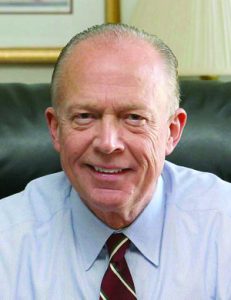Across the country, transparency movement sees progress – and daunting setbacks
September 21, 2014By Richard Eckstrom
S.C. Comptroller
One of the keys to quality government is the ability of citizens to see how decisions are made and how tax dollars are spent.
It’s that notion that drove me several years ago to establish a special website showing itemized expenditures by state government, and to later launch an ultimately successful initiative to encourage cities, counties, universities and school districts to publish spending details online. I still spend much time following news stories on transparency-related matters – from open-meetings laws to online finances – to monitor national trends and developments.
Across the country, ordinary citizens are waging an uphill battle to pull back the curtains of government. And they’re celebrating small victories. For example, the Forsyth County, Georgia court system recently sided with a citizen who was wrongly prohibited from video-recording a meeting of her local city council. The court ruled that the city of Cumming, as well as its mayor, must each pay $6,000 for violating the state’s open-government law. The ruling is significant because violations of open-government laws are rarely prosecuted.
Los Altos, California’s city council is considering a worthwhile set of reforms, including posting preliminary agendas of council meetings online ten days in advance. (State law only requires them to be posted 72 hours beforehand.) Additionally, responses to requests for public records would be made available online. And a task force would be established to offer input on transparency matters.
And the Dallas (Texas) News recently spotlighted the efforts of an obscure government official who had gone to great lengths to improve transparency. The official – a staffer for the Texas State Senate – was a dubbed a “watchdog superhero” for using innovative methods to give citizens greater access. For example, he posted on social media sites (such as Twitter) the lineup of bills coming before an influential senate committee.
Unfortunately, any effort to shine a light on government will likely hit roadblocks. And although politicians frequently tout transparency, they’re often the ones creating the roadblocks.
In early September, for example, a Suffolk, Virginia newspaper reported that officials there had postponed a meeting of a special task force after learning the meeting would be open to the public. Officials had intended to hammer out budget disagreements behind closed doors — until the city’s attorney informed them that shutting out the public would be illegal. One councilman told the Suffolk News-Herald he preferred a closed meeting because he didn’t want “to have to worry about being politically correct.”
State governments are notoriously slow to pass transparency reforms. In Michigan, legislation appears to have stalled which would make information more accessible by restricting how much money governmental bodies can charge the public for turning over records. The state’s House of Delegates passed the bill in March, but six months later the Senate has yet to take action – leaving many worried it will be left to die.
Sadly, despite President Obama’s promises of an “unprecedented level of openness,” the most stringent efforts to keep the public in the dark seem to come from the top.
According to recent news reports, a leading national journalist speaking at a journalism conference rattled off a list of ways the Executive Branch hinders the release of public information – including “intimidation of sources.” For example, U.S. Department of Transportation officials told her they’d be fired for speaking with her.
The journalist – the Washington Bureau Chief for the Associated Press — said the White House’s secrecy problem is “significantly worse than previous administrations,” adding that the closed-door culture at the top has trickled down to state and local governments which, emboldened by the White House, are increasingly thumbing their noses at open-records laws.
That’s a shame. The White House is in a position to set the right example. Instead, it’s setting a poor example, and dealing a setback to an important, worthy cause.
It’s worth noting that the President’s approval ratings have plummeted, and lingering controversies – including IRS targeting, the Department of Justice snooping on reporters, and Benghazi – have no doubt been a factor. The administration dismisses such controversies as “phony scandals” but has only itself to blame for the atmosphere of distrust. Secrecy breeds suspicion.
It’s never too late to do the right thing. The President would do well to belatedly honor his transparency promises — if not for the good of the country, than to improve his own image.
—
Richard Eckstrom is a CPA and the state’s Comptroller.



















